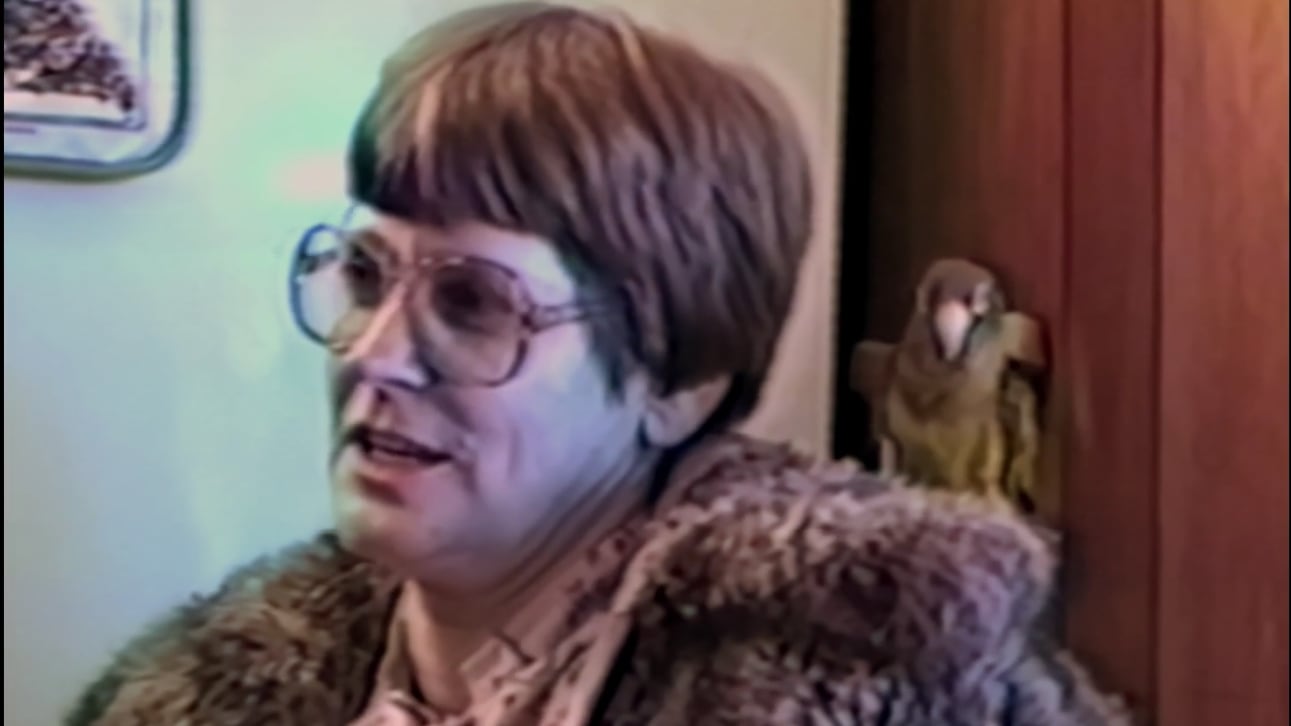In 1986, filmmaker Sandra Luckow devised an idea for her Yale thesis project: a documentary about a 15-year-old Tonya Harding and her first U.S. Figure Skating competition. It was eight years before the Nancy Kerrigan scandal. "Listen, this is like the Rocky story, this is like the American dream, this is the girl going the distance," Luckow remembers pitching the project. "This will capture people's hearts and then they'll change their minds about figure skating."
Thirty-two years later, in a vortex of scandal, fury and antihero worship, Luckow's documentary, Sharp Edges, has emerged as something else: a portrait of a Harding unspoiled by controversy. The film will get its first public screening at the Tonya Harding Film Festival, which is a double feature of Sharp Edges and Breakaway, Harding's straight-to-VHS acting debut.
Related: Sandra Luckow's New Documentary Looks at a Family Upended By Mental Illness
Luckow met Harding when she was 9 and Harding was 3½, when the two shared the same skating coach. WW talked to Luckow about the film.
WW: Could you walk me through how you came to make a movie about Tonya Harding?
Sandra Luckow: When I was in school, I wanted to do a film instead of writing a senior thesis. My adviser said, "What do you want to make a movie about?" and I said, "Well, I want to make a movie about the New Haven homeless," and he said, "Sandra, what do you know, really know, about the New Haven homeless? You need to make a film about something that you have intrinsic knowledge of." Tonya was going to her first national skating competition in New York and Yale is in New Haven, about an hour and a half from where the competition was going to be. And all of the sudden, it hit me: if there was anything I intrinsically knew, it was about the desire and struggle to be a championship skater—even though I wasn't one, I knew about it.
Was Tonya a willing and open film subject?
Yes, absolutely—because she had known me a long time and because she knew that this might be a way to help her continue skating. Because of the incredible pressure involved in national competition, you're not really camera-conscious at that point—you have to concentrate on what you're doing. After the competition even, she wasn't concerned about being on camera, and I would have the camera, literally during that competition, on my shoulder for four days, and there was never a time when I was without it. So the camera became like my own appendage.
What was it like to know her back then, when you were making the film?
You have to understand that I didn't learn anything about Tonya making the movie that I didn't already know. I knew that Tonya performed best when she was up against a challenge. I certainly knew that she was the most talented skater. At the age of 5, she was landing axels, which was unheard of. By the age of 13, she had passed her gold test in figures, which was unheard of. Tonya was always very precocious, very much her own person in terms of who she was. She had a very tumultuous upbringing. She had a very tumultuous relationship with Jeff [Gillooly, Harding's ex-husband]. But one of the things that people are not understanding is that she was given tremendous opportunities by other people in her life that she chose not to take.
What kind of opportunities?
This is one of the reasons I'm doing the film in Portland—because I have to say, I'm really amazed that she feels that Portland owes her an apology. I was there. I saw the way the people of Portland from day one supported her and she threw it back in their faces in so many ways and she so disappointed them, and Tonya's like, "Get over it, people. I was a victim."
So you disagree she was a victim?
This idea that the skating community looked down on her and didn't accept her is really all in Tonya's mind. Because if you look at the skating record, she was never given lower marks than she deserved—except for maybe once. That's certainly not the portrayal in I, Tonya. What's shocking to me about I, Tonya is not the movie itself. I think it's a well-made movie and very cleverly done. Because the writer of the movie, who interviewed both Jeff and Tonya, knew that there's no truth in it—that everybody has their own version of things which they sell as the truth.
Were you surprised that things happened the way they did with Harding and Nancy Kerrigan?
Everybody deserves a chance at redemption. I absolutely believe that. And I often wonder what would happen if Tonya would be like, "People, I really screwed up. I screwed up and I take responsibility for it. I don't like that I was banned from the only thing I ever knew how to do, but there are consequences to my actions and I'm really sorry that I disappointed you." First of all, that would never happen—Tonya is not capable of that kind of insight. But I think there would be such forgiveness and real redemption for her if she could do that.
SEE IT: The Tonya Harding Film Festival plays at the Alberta Rose Theatre, 3000 NE Alberta St., albertarosetheatre.com. 7:30 pm Thursday, March 8. $15.
